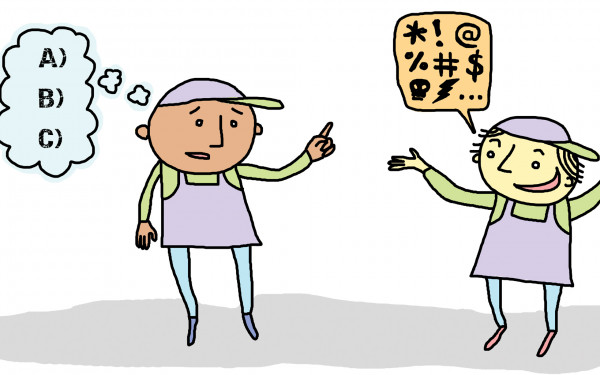Racism 101
Centre for Gender Advocacy Hosts Workshop About Being a Better Ally
The discussion of racial violence has become a prominent issue at Concordia University in recent months.
Notably, the story of Mei-Ling (a pseudonym) went public last year, as the Concordia student condemned sexual and racial harassment she experienced from two former colleagues while working for a student association.
On Thursday night, the Concordia Centre for Gender Advocacy has done its part in helping ensure these conversations continue. As a part of its “Be a Better Friend and Ally” workshop series, the Centre held a workshop about racism, its effects on society, and how we all can become better allies to those who suffer from those effects.
Advocacy training is a service that is provided by volunteers and gives students a safe, non-judgmental and empathetic environment to which they can turn for support, said Harleen Bhogal, the Centre’s Peer Support Training Coordinator.
The workshop series was originally meant for the peer-training volunteers, but when interest was shown from people outside of the Centre, they decided to open the workshop to the public.
Bhogal further explained that the workshops have received a very good turnout—usually a minimum of 40 to 50 people—and the reactions have been positive.
“The workshops provide an atmosphere of learning where everyone can learn about these issues,” Bhogal said. “Many people return.”
The past events have covered topics such as active listening, harm reduction, and accessibility and ableism. Knowledgeable individuals in these specific subjects facilitate them, and the subject is approached in a broad and introductory way so that attendees will have an easier time getting introduced to the subject.
Bhogal specified that workshops take an anti-oppressive and feminist stance.
At the workshop, facilitators Kelly Schieder and Annie Chen began with a land acknowledgement to the Mohawk people, followed by the introduction of a traffic light metaphor so that attendees could gauge their comfort levels during the workshop.
Another highlight of the event was defining common terms such as “race,” “ethnicity,” “culture,” and “social constructs.” The concept of reverse racism—which is the belief that people of colour and indigenous people can be racist towards white people—was discussed as well.
It was debunked as an invalid concept because, though this occurrence could be considered discrimination, it would not effect a white person the same way it would a person of colour or indigenous person due to the thousands of years worth of racism and violence in their history.
Bhogal said she observes that race is deeply embedded in educational institutions, and university settings aren’t exempt.
“Universities are very white dominated spaces, especially with the history of McGill,” said Schieder, who attended the Montreal university.
“It ranges from who is sitting in class, to who is teaching, and even down to what textbook is used,” she said. “This impacts how courses get taught.”
“Universities are very white dominated spaces, especially with the history of McGill.” — Kelly Schieder, a workshop facilitator
She referenced how James McGill, the founder of the university, was a slave owner and employed slave labour.
Chen added that she has not experienced any overt racism on campus, but that the space itself fuels it. “Violence comes from explaining my existence,” she said.
On the topic of how one could be a good ally, all three presenters echoed similar thoughts. “Being an ally is a practice, ongoing and constant,” Bhogal. She added that listening is beneficial to get a sense of what people are going through, especially to understand what support they may need.
Schieder agreed that ally-ship is constant, but that, “it’s not an identity. You must demonstrate solidarity and, sometimes, that means silence.”
“You have to look at people in power and see how they’re a source of racism,” said Chen.
The CGA’s next workshop in this series is called, “Racism 201: Aboriginal Perspectives and Anti-Colonization,” and will be held on Jan. 21 beginning at 6:30 p.m.

_733_1050_90.jpg)
_600_832_s.png)

_600_375_90_s_c1.jpg)
_600_375_90_s_c1.jpg)
